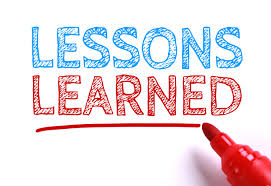Lights, Camera, Action - Video Conferencing Tips for Authors
/Welcome to the new normal that includes working and connecting in different ways. A lot of us aren’t YouTubers or TikTok experts, so it’s tough to get the right lighting and look. And you don’t have to invest in fancy cameras, microphones, or ring lights. Here are some tips to help you look and sound your best.
Location, Location
Find the best spot in your house. If you’re using a phone or tablet, you can be mobile. Experts suggest that you turn your phone on with the camera facing you. Then walk around your house and find a good spot with a lot of natural light. If you need your laptop for the meeting, you’ll need a spot where you can still type and use the mouse. Being in front of a window is good (unless the sun is shining directly in your face). You don’t want lamps/lights that are above or on the sides because they cast shadows.
You want your camera to be just above your eyes/forehead. You don’t want to be looking down (too much saggy chin), and you don’t want the camera pointing up your nose. You also don’t want to be looking off camera. Use books or other items to adjust the height of your camera. If you’re using a phone with a pop socket, you can hang it on a mug for an easy tripod.
Make sure your video spot is not in a major thoroughfare of your house. You don’t want interruptions or photobombs.
Check your background and make sure there’s no junk or clutter. Remember that sometimes, the camera picks up more than you think. I have a whiteboard in my office where I plot the next mystery. My team is always trying to see what’s on the board behind me.
Your Look
Ladies, you do want to wear some makeup, so you don’t look washed out on camera. Wear solid colors (but not white or black). Wear jewelry. My friend wears hats when she doesn’t want to do her hair. One team recently had crazy hat day, so everyone had an excuse to cover up a bad hair day. A lot of YouTube stylists suggest dry shampoo or wetting and styling your bangs on days you don’t want to do a full wash and style.
They Can See You and Hear You
They can see you, and sometimes, we forget that. Over the last few weeks, I’ve seen kids and pets photobomb calls. We’ve been interrupted by phone calls and delivery drivers. I try to remember to close the door, so they don’t see distractions behind me. Use mute when you’re not speaking to cut down on background noise. Also, if you’re multitasking, they can see that, too.
Practice Makes Perfect
Do a practice session and check your video and sound. If you’re working with a group of people, you may want to have a mini session to make sure everyone can logon, work the equipment, and host the meeting.
Make sure you know how to adjust your sound and camera. If your internet is slow, you will have issues with your video quality. The sound and the video may not match, and it will look like a 1950s dubbed movie. If you need to stream video, make sure no one else at your house is streaming or gaming at the same time.
Practice with the video conference tool. Most have similar features, but buttons, views, and functionality will vary. If you’re going to share your screen, make sure you have the files open and ready.
Some days, I get video conference fatigue. I never imagined that I’d be popping in to one video chat after another at the day gig. But it is a good way to stay connected and to see others when we’re quarantining.
Y’all be safe, and hopefully, we’ll be back together in person soon.
















